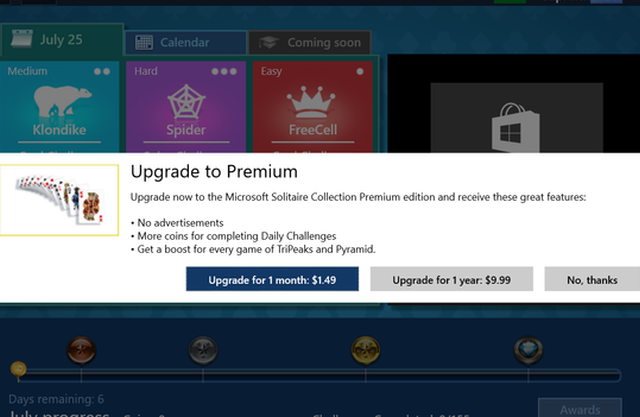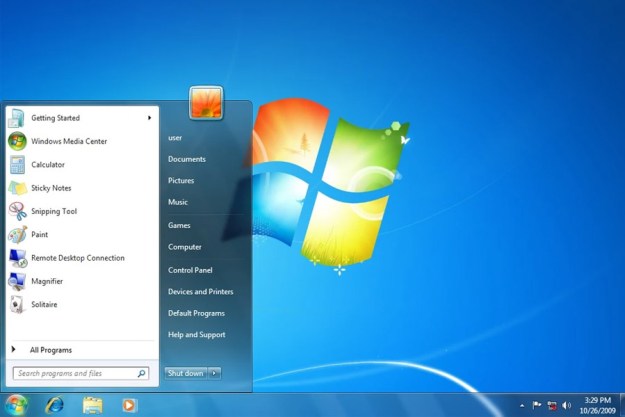
Whether it’s the value of post-release downloadable content or the much-maligned blight of free-to-play mechanics, video game pricing is a hotly debated issue. Today, there’s new proof that these practices are spreading to every corner of the industry, as even Solitaire is being monetized.
Upon opening the new version of the Microsoft Solitaire Collection that’s bundled in with Windows 10, users will be greeted with an ad that prompts them to upgrade to the premium edition of the game — at a cost of $1.49 per month, or $9.99 for an annual subscription, according to a report from Business Insider. While longtime players may complain online, offices around the country will be anticipating an uptick in productivity.
There are two main caveats to the fees being bandied around. First off, a subscription pays for optional features, so you’ll still be able to enjoy a basic game of Solitaire without putting any money down. Second, similar pricing has been in place since Windows 8 — although Solitaire wasn’t pre-installed on that version of the OS.
The biggest takeaway here is that Microsoft knows that users have become used to piecemeal pricing in the past few years, largely thanks to similar strategies in place on mobile app stores. In today’s gaming marketplace, this is where the money is, and it’s really not that different to shareware releases back in the 1990s.
This move may not seem like such a big deal, but it certainly shows how different the world of tech is to that of 25 years ago. You may have had to pay for the OS when Windows 3.0 released in 1990 — but at least Solitaire was free.
Editors' Recommendations
- Scores of people are downgrading back to Windows 10
- League of Legends isn’t as big of a dating don’t as you may think
- Microsoft plans to charge for Windows 10 updates in the future
- The best Windows 10 keyboard shortcuts
- F-Zero 99 isn’t the revival I dreamed of, but it’s a good start


